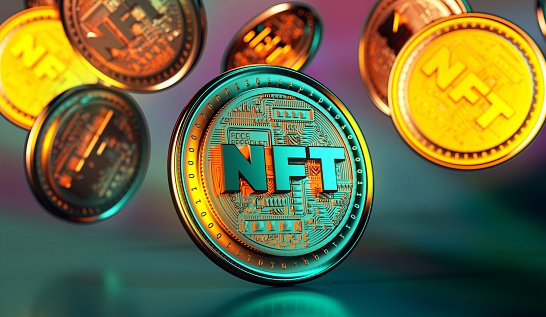Introduction.
I have always been fascinated by video games and the magic behind creating them.
The idea of designing worlds, characters, and interactive experiences has pulled many into the game development field.
If you are curious about how to turn this passion into a career that pays, you are in the right place.
In this post, I share my insights on starting a career in game development and how you can earn a living doing what you love.
The Growing World of Game Development
Game development is not just about writing code or designing art; it’s about bringing ideas to life. The gaming market has seen tremendous growth over the past few years.
According to Newzoo, the global games market reached around $200 billion in recent years, and this trend is expected to continue as more people around the world embrace digital entertainment ().
This growth opens up many job opportunities—from working at large studios to starting your indie venture.
The beauty of game development is that it does not require a one-size-fits-all approach. I have seen many paths that lead to success, and each journey is as unique as the games created.
Laying the Foundation: Skills and Education
Before you dive into game development, it helps to have a basic understanding of the skills required. A mix of technical skills and creative talent is essential. Here are some areas to focus on:
Programming
Languages such as C#, C++, or even Python are commonly used. Online platforms like Unity Learn and Unreal Engine documentation provide beginner-friendly tutorials and resources.
Art and Design
If you are more inclined toward creating visual assets, consider learning digital art or 3D modeling. Software like Blender and Adobe Creative Cloud can be a good start.
Game Design
Understand the principles behind engaging gameplay. Courses on platforms like GameDev.tv help break down the design process into manageable pieces.
Formal education is not the only path to success. Many successful game developers are self-taught and have built impressive portfolios through practice and passion projects.
Building Your Portfolio
A strong portfolio is a must in the game development industry. It showcases your skills and your journey as a developer.
Start small by creating prototypes or simple games. Use free resources and online tutorials to guide your projects, and be sure to share your work on platforms like GitHub, itch.io, or even your website.
I recommend setting aside time to work on personal projects. Even if your first few projects are not perfect, each one teaches valuable lessons.
Over time, these projects build into a portfolio that demonstrates your growth, creativity, and technical ability.
Finding Your Niche
The gaming industry has many roles, and finding your niche is key. Some popular roles include:
- Programmer: Focus on writing code that brings game mechanics to life.
- Artist: Work on creating characters, backgrounds, and animations.
- Designer: Plan the gameplay, levels, and overall user experience.
- Sound Designer: Create music and sound effects that enhance the gaming experience.
Choosing a focus area can help you direct your learning and portfolio building. However, don’t be afraid to dabble in different areas early on. The skills you learn in one area can often complement another.
Networking and Community Engagement
Game development is a collaborative field. Joining online communities, attending local meetups, or participating in game jams can open doors to learning opportunities and even job offers.
Platforms like Gamasutra and Game Developers Conference (GDC) are great places to start.
Building connections with other developers can provide feedback, lead to collaborations, and keep you updated with industry trends.
I always find that the more people I share ideas with, the more inspired and informed I become.
Monetizing Your Skills
There are many ways to turn your passion for game development into a sustainable income:
Working for a Studio
This traditional route offers stability, benefits, and team collaboration. Major studios often look for candidates with a strong portfolio and relevant experience.
Freelancing
Freelance game developers work on a project-by-project basis. Websites like Upwork and Freelancer can be platforms to find short-term projects. Freelancing provides flexibility but requires strong self-discipline.
Indie Development
Many game developers have found success by creating and selling their games. While it involves more risk, indie development can be very rewarding. Platforms like Steam and the App Store have allowed indie developers to reach a global audience.
Teaching and Content Creation
If you enjoy sharing your knowledge, consider making tutorials or teaching online. YouTube and Udemy are great platforms to share your expertise, which can also generate revenue.
Each route has its own set of challenges and rewards. I have learned that a mix of these approaches often works best.
For instance, while building an indie game, I might take on freelance projects to ensure a steady income stream.
Practical Tips for Aspiring Game Developers
Here are a few practical tips that have helped me along the way:
Start Simple
Work on small projects to build confidence and experience.
Learn Continuously
Technology and trends in game development change quickly. Make a habit of learning new skills.
Embrace Feedback
Criticism is a chance to improve. Share your work with trusted friends or mentors.
Stay Organized
Manage your time well, especially if you are juggling multiple projects or freelancing gigs.
Be Patient
Success doesn’t happen overnight. Celebrate small wins along the way.
I have found that keeping a journal or a blog to document my progress helps me track improvements and learn from mistakes.
FAQs
Do I need a college degree to become a game developer?
A college degree can be helpful, but it is not a strict requirement. Many successful game developers are self-taught or have attended specialized boot camps.
How long does it take to become a game developer?
The timeline varies for everyone. Some can create small games within a few months, while mastering the craft might take several years of practice.
Which programming language should I start with?
It depends on your focus. C# is popular for Unity, while C++ is often used for Unreal Engine. Choose one that aligns with your career goals.
Can I work as a freelance game developer?
Yes, many developers find freelance work. It offers flexibility and the opportunity to work on diverse projects, but it also requires good time management skills.
What are some good resources to learn game development?
I recommend Unity Learn, Unreal Engine documentation, and GameDev.tv for online courses and tutorials.
Further Resources
Books
“The Art of Game Design: A Book of Lenses” by Jesse Schell provides an in-depth look into game design from a creative perspective.
“Game Programming Patterns by Robert Nystrom offers insights into efficient coding techniques for game development.
Online Courses
Platforms like Coursera, Udemy, and edX offer courses that range from beginner introductions to advanced game development topics. These can be a great way to structure your learning journey.
Communities
Joining forums like r/gamedev on Reddit or participating in game jams hosted by organizations such as Global Game Jam can help you connect with other developers and get feedback on your work.
Events
Consider attending local meetups or industry conferences like the Game Developers Conference (GDC). These events provide opportunities for networking, learning, and even showcasing your projects.
Wrapping It Up
Game development is a field that rewards creativity, persistence, and continuous learning. It offers a variety of paths—whether you dream of joining a big studio, working on freelance projects, or launching your own indie game.
As I continue my own journey in game development, I find that every project, challenge, and collaboration helps me grow as both a developer and a creative person.
The world of game development is full of opportunities. With clear goals, consistent practice, and the willingness to learn from every experience, you, too, can carve out a rewarding career in this industry.
So, I ask you: How can you start your journey to become a game developer and make money?




GIPHY App Key not set. Please check settings